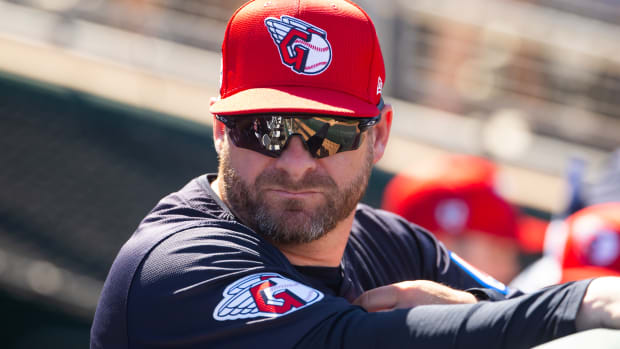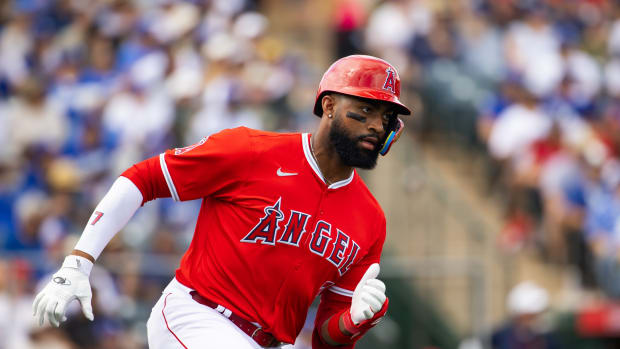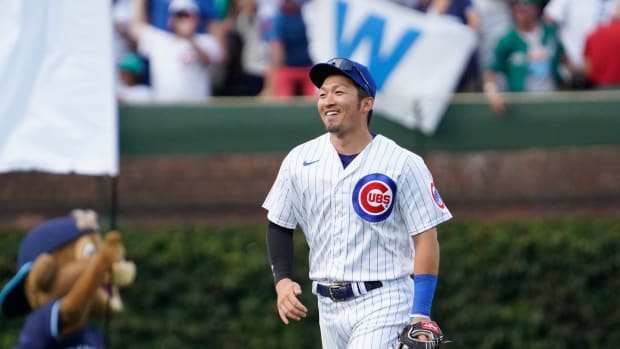What’s the Plan in Pittsburgh? Even the Pirates Seem Unsure
LAS VEGAS — The Pittsburgh Pirates’ Tuesday moves were the mundane filler that makes for most of the hot stove’s daily fuel. It’s something to keep everyone warm, if only slightly, but it’s certainly not enough to cause much in the way of sparks or smoke. The Pirates sent Iván Nova to the Chicago White Sox in exchange for some international bonus money and 19-year-old pitcher Yordi Rosario; scarcely an hour later, they reportedly signed Jordan Lyles as an ostensible replacement for Nova. A 31-year-old middling starter was supplanted by a 28-year-old middling swingman, with a low prospect and a little bit of cash to fill in the gaps around the edges. The Pirates, in other words, are not significantly better or worse than they were yesterday. But they are less expensive—the team’s only notable piece of direction, as it treads water with a cycle of marginal upgrades and downgrades.
It’s hard to see these transactions as much more than a salary dump. In 2016, Pittsburgh signed Nova to a three-year, $26 million deal. That didn’t exactly work out as planned, with the first two seasons yielding a 4.16 ERA (98 ERA+, or almost average, but not quite). So it’s not surprising that the club would be looking for a way to get out of paying him $9.2 million in 2019. Now Pittsburgh’s figured out a way to do that, and it’s figured out a potential replacement, too.
TAYLER: Troy Tulowitzki's Release Gives Him a Much-Needed Fresh Start
Lyles is coming off a relatively promising season—relatively being the key word, as his bar for promise wasn’t especially high after a 7.75 ERA in 2017. Lackluster performance drove him out of a regular starting role in 2016, and he’d been struggling to find his footing ever since. With 87 IP as a swingman in 2018, he pitched more than he had in any season since 2014, and he set a personal best for strikeout rate (22.6%, or more than eight per nine innings) and ERA (4.11, which, well, that’s something). He revamped his pitch mix, throwing the curveball more than ever and his slider less. His development is encouraging, but it’s not earth-shattering, and whether he’s used as a swingman or as a true fifth starter, it’s hard to imagine him making much of an impact.
The details of his new contract aren’t yet publicly available, though it’s been reported that it will be for one year, and, in any event, it seems reasonable to expect something closer to his most recent deal ($1 million for 2018) than Nova’s $9.2 million for 2019. The Pirates are maybe getting marginally better—Lyles is trending up after last season’s adjustments, and he’s younger than Nova—or they’re maybe getting marginally worse, but they’re certainly getting cheaper.
If that sounds like it’s meant to be damning, well, it doesn’t have to be. In a vacuum, this salary dump would be a logical route to pursue. It could free up space to invest in talent for this year, or it could make clear sense as part of a long-term plan. But it’s not happening in a vacuum. It’s happening in an environment where Pittsburgh seemingly isn’t motivated to invest in much of any talent: 27th in payroll in 2018, 26th in current payroll for 2019. And it’s happening in an environment where it seemingly doesn’t have much of a long-term plan, either. It’s been less than a year since the team traded away its ace, Gerrit Cole, and its veteran star, Andrew McCutchen—an apparent admission that it wasn’t trying to contend in 2018, though also an apparent admission that it wasn’t interested in a lengthy rebuild, as the deals brought back talent that was nearly all ready for the major leagues. And it’s been less than five months since the team found itself on the fringes of the playoff picture, anyway, and set up a blockbuster trade for Chris Archer—an attempt to land a young ace like the one it had just given up.
VERDUCCI: Why Aren't Teams Lining Up to Sign Former Cy Young Winner Dallas Keuchel?
With the benefit of hindsight, of course, it’s easy to pick apart each of these moves. The Pirates didn’t know that Cole was going to develop from a great pitcher into a brilliant one; they didn’t know that none of the talent they received in return would make an instant impact; they didn’t know that Archer would sputter out. Even viewed as kindly as possible, though, it’s hard to see much coherent direction here. They’re in a tough division—one that’s gotten tougher this winter, with St. Louis’ acquisition of Paul Goldschmidt—and they’ve spent the last year only trading steps forward and back, not investing enough to succeed right now and not setting any real framework for the future.
On Tuesday, Pittsburgh trimmed a little around the roster’s margins, nothing more or less. Nova’s departure and Lyles’ addition don’t figure to be terribly consequential. But it’s hard to think of a better symbol of the team’s present course: not better, not worse, just cheaper.


































